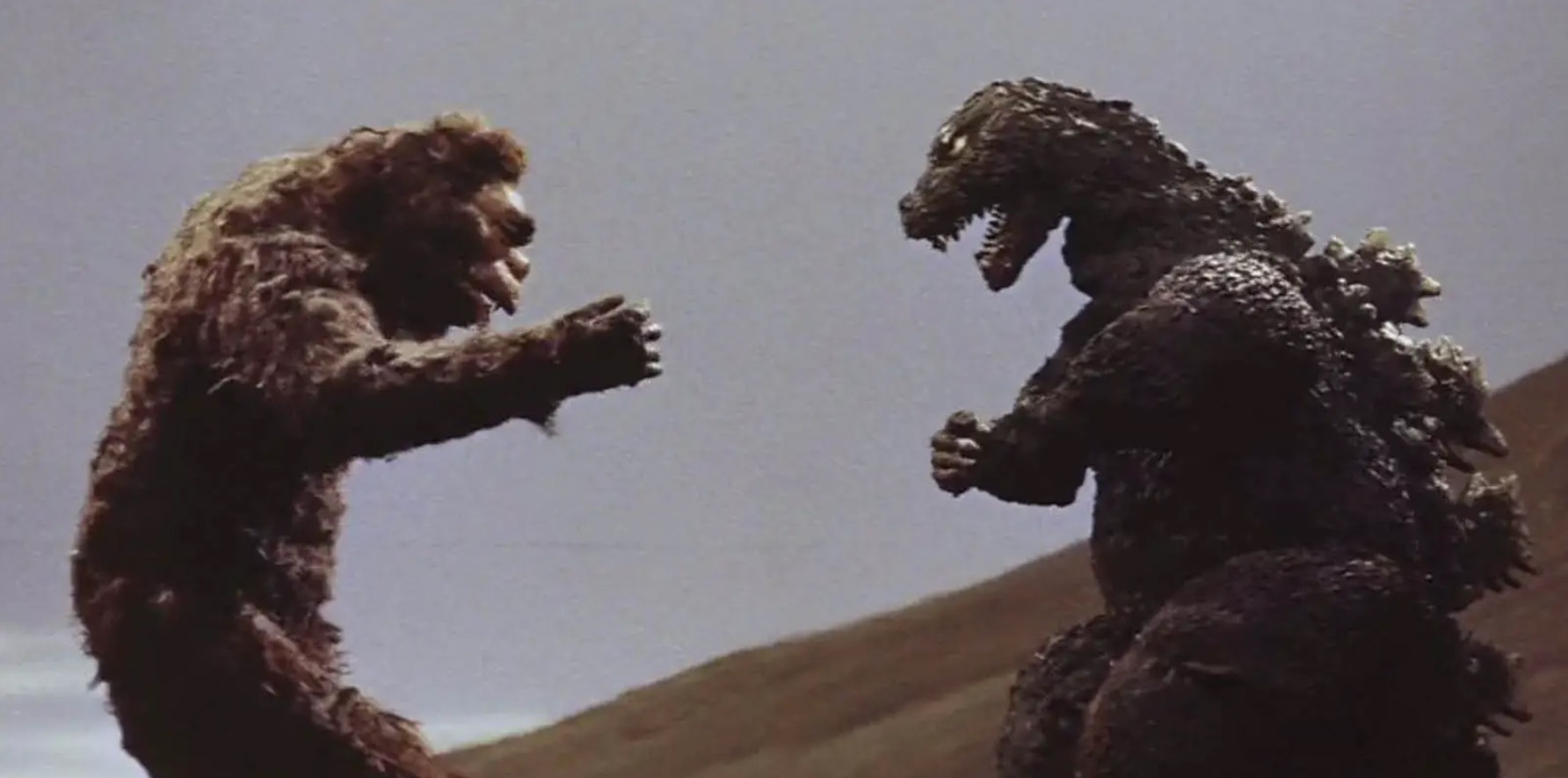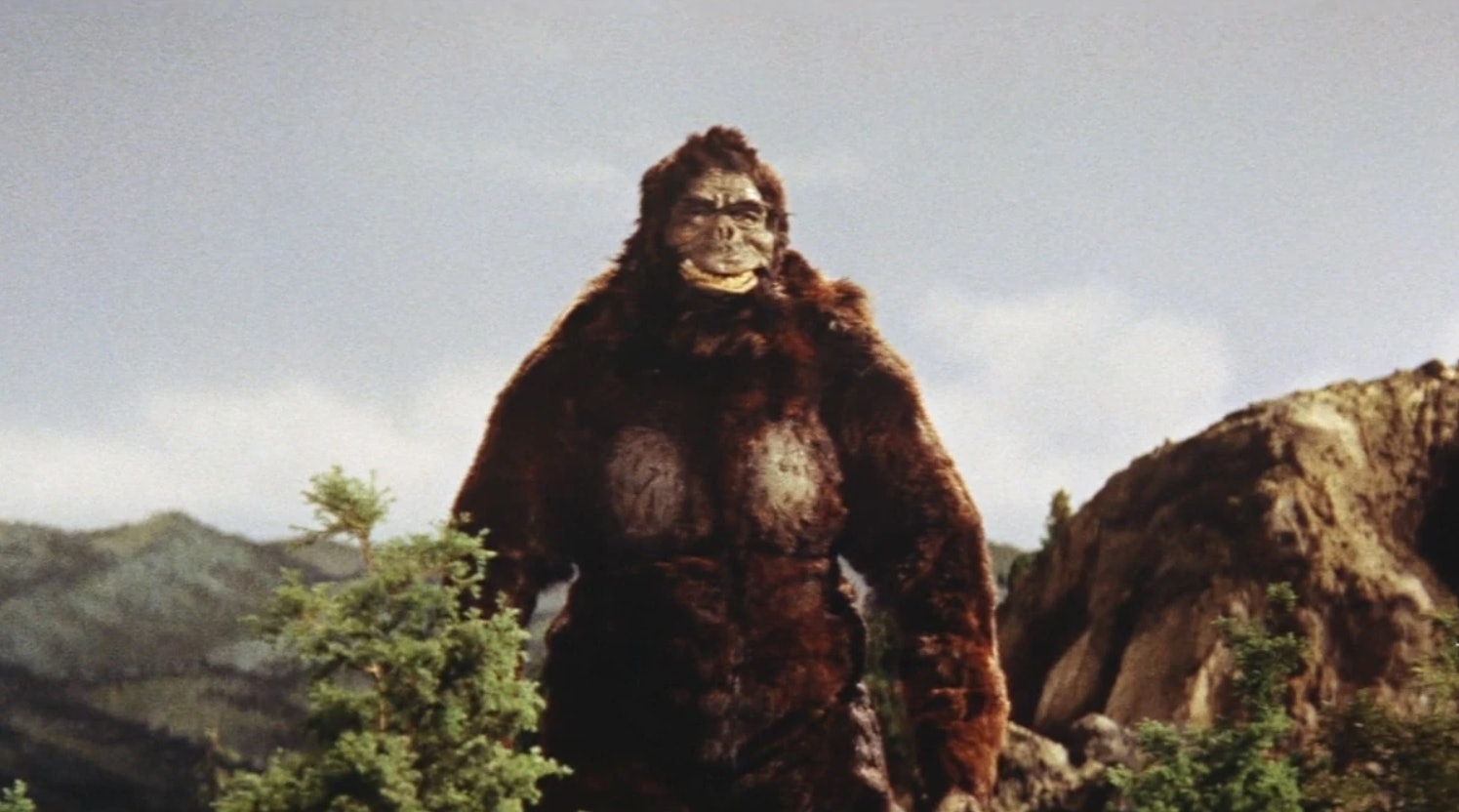
Before it was re-positioned as the grand Avengers moment of an expanded “MonsterVerse,” the idea of King Kong fighting Godzilla had evolved for decades. It began as an entirely different project, then became a blockbuster success in Japan and abroad. From there, it would spawn a rumor that changed how people saw the film, and its modern incarnation altered the course of its gigantic stars. Sixty years after the film’s American release, King Kong vs. Godzilla is a reminder that no cinematic legacy is set in stone.
Originally, Godzilla was nowhere near the picture. Willis O’Brien, the famed special effects artist behind 1933’s King Kong, had changed an entire industry with his stop-motion work, only to watch it leave him behind. In the 1950s, creature features were pumped out en masse, featuring supersized beasts that recalled Kong’s appetite for destruction, but without his sense of pathos. O’Brien, keeping with the spectacle of the times, developed a story called King Kong vs. Frankenstein, a pitch that would land in the hands of industrious producer John Beck.
The film would change as Beck and O’Brien tried to sell it (Frankenstein? Didn’t Universal own that guy? Better change the title), but Beck finally found a bidder: Toho, the Japanese studio behind Godzilla. A version of Frankenstein would eventually show up in a Toho film, but for their first go-round with the big ape, they’d dismiss Mary Shelley’s monster from the fight card and set him off against their most famous creation, the King of the Monsters.
O’Brien died in 1962, and likely would have been far from thrilled that his original idea had been rendered into man-in-rubber-suit mayhem. The rest of the world, however, seemed delighted. King Kong vs. Godzilla was a huge hit in Japan and, a year later, in the United States. Its ending, with Kong the only monster to emerge after the two combatants plunge over a cliff and into the sea, seemed as clear cut as possible. Kong, the obvious underdog, was victorious, although Godzilla, the fire-breathing behemoth, had lived to fight another day (and another day and another day).
At least that’s what it looked like. For reasons unknown, magazines like Spacemen and Famous Monsters of Filmland spread a rumor that there were actually two endings, one for each country. According to these unsubstantiated claims, Americans got the version where King Kong won, while Japanese audiences celebrated Godzilla as the victor. The idea that Americans would be treated to alternate, crowd-pleasing footage isn’t ludicrous: the “Americanized” version did add some stock footage and newscast scenes, including a segment where a scientist explains Kong and Godzilla’s motivations and why Godzilla is such a mindless brute. “Godzilla has a brain about this size,” he says, holding up a marble.

The rumor made less sense from the Japanese perspective. Built on the premise that Godzilla was a national hero who deserved to win, it ignored the fact that, in 1962, Godzilla was still treated as an antagonist. Though his transition from a nuclear nightmare in the 1954 original had already begun, Godzilla would be a 15-story ne’er-do-well for a few more films. It wouldn’t be until the climax of 1964’s Ghidorah, The Three-Headed Monster that Godzilla began playing for Team Japan as their protector. But the rumor of the dual endings would proliferate to the extent that it was an answer in a Trivia Pursuit pack and included as a tidbit in nostalgic books about the monsters.
Fan word-of-mouth would eventually clear this up, but the rumor served as an example of a kaiju Mandela Effect for years. Still, King Kong vs. Godzilla remained a titanic clash that a filmmaking industry obsessed with expanded universes would inevitably seek to revisit. But when they did, it would be off the backs of a different project, one meant to revitalize Godzilla’s potential as a Hollywood player.
It was only late in production of the 2014 Godzilla reboot that gears were put in motion to see him eventually clash with Kong. The fact that this specific incarnation was suddenly being set up for a monster mash with his former rival is perhaps the most jarring part of watching the modern MonsterVerse series now. Even in a film that’s come to be defined by the quote “Let them fight,” most of director Gareth Edwards’ energy is devoted to atmosphere, not to turning his creatures into monumental action figures.
Regardless, the resulting Godzilla vs. Kong would be one of the biggest hits of 2021. In a way, it would bring the rumor of the two endings full circle: Godzilla vs. Kong ends in a tie, setting up another sequel. There is no clear winner. As the continued cinematic prevalence of both monsters indicates, it’s never really mattered who emerges triumphant. The real champion is the studios, who can rake it in by allowing two prized monsters to duke it out.







